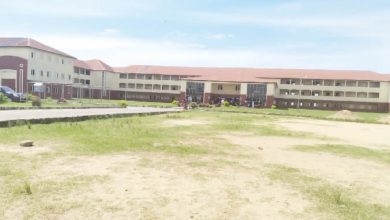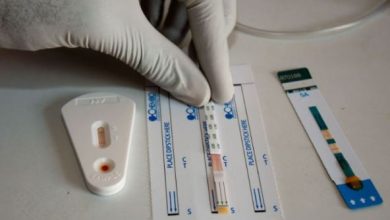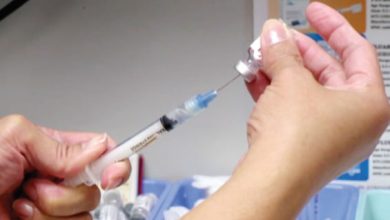
- Experts reveal that 11.8% of Nigerians suffer from life threatening fungal infections
Medical experts have said that 11.8 percent of Nigerians suffer from invasive fungal infections annually.
The experts, who spoke at the fungal disease surveillance stakeholders meeting organised by the Nigeria Centre for Disease Control on Monday, said invasive fungal infections are life-threatening and could lead to death if left undiagnosed and untreated.
According to them, invasive fungal infections often affect severely-ill patients and those with significant underlying immune system-related conditions, and populations at greatest risk of invasive fungal infections include those with cancer, HIV/AIDS, organ transplants, chronic respiratory disease, and post-primary tuberculosis infection.
Invasive fungal infections are those infections where fungi have invaded the deep tissues and have established themselves resulting in a prolonged illness.
Speaking at the meeting, an associate professor at the University of Lagos and Head of Medical Microbiology and Parasitology at UNILAG and Lagos University Teaching Hospital, Rita Oladele said despite the high morbidity and mortality linked to fungal diseases, they remain unrecognised in Nigeria.
According to her, there is no mycology laboratory and only four anti-fungal agents are registered in Nigeria.
She, however, said there is a dire need for capacity building in tackling fungal infections in the country.
“There is a need to establish a surveillance system, concomitant integration of fungal disease into the training of the health workforce. At least three reference mycology laboratories must be established for training and diagnosing these serious life-threatening infections and there is a need for anti-fungal diseases in existing health programmes in the country.
“From research, if you delay starting treatment for things like invasive candidiasis, and invasive aspergillosis, there’s a 20 per cent chance that the person will die. If you miss the diagnosis for five days, it’s invariably that the patient will die.
“We must make this diagnosis early. Unfortunately, the doctors are not suspecting it and the laboratories do not have facilities to diagnose, so people are dying needlessly.
“Some of the patients you think have tuberculosis and on treatment could be having fungal disease and it is when we do the right test that we will be able to know. The same way TB patients will cough is the same way the patient with chronic aspergillosis or histoplasmosis will cough.
“So, you need to be able to do the test to be able to know what is wrong,” she said.
The National Antimicrobial Resistance Programme Coordinator, Dr. Tochi Okwor, said invasive fungal infections are life-threatening diseases with significant morbidity and mortality.
She said, “Some of the drugs to treat these diseases are not routinely accessible and affordable. Two of these infections, if not promptly diagnosed result in an over 70 per cent mortality rate. In 2014, an estimate of serious fungal infections in the country was done.
“It revealed that over 960,000 Nigerians are estimated to be affected with substantial mortality. A survey of doctors in Nigeria in the same year revealed that only two (0.002 per cent) out of 1,046 doctors, had a good level of awareness and knowledge of invasive fungal diseases.
“However, a significant number of Nigerian patients are at risk of developing these diseases, with the major risk factors being HIV, diabetes, long-term use of steroids, tuberculosis, cancers, old age, new-born (especially low birth weight babies), and generally people that have some form of immunosuppression.
“There is the additional challenge of some of these disease-causing fungi now being resistant to the readily available anti-fungal drugs. There have been documented reports of outbreaks of Candida Auris, (a multi-drug resistant organism) in various countries of the world, and in 2022, we documented an outbreak in Nigeria which is still ongoing.
“Mucormycosis (the black mold) which was a major scare in India during the peak of the COVID-19 pandemic has also been documented amongst Nigerian patients. One of the drugs to manage this condition is not yet registered in Nigeria,” Dr. Okwor noted.
Reports have it that in October 2022, the World Health Organisation published a report highlighting the first-ever list of fungal priority pathogens – a catalogue of the 19 fungi that represents the greatest threat to public health.
The WHO fungal priority pathogens list is the first global effort to systematically prioritise fungal pathogens, considering the unmet research and development needs and the perceived public health importance.
The WHO FPPL aims to focus and drive further research and policy interventions to strengthen the global response to fungal infections and anti-fungal resistance.
The WHO said, “Fungal pathogens are a major threat to public health as they are becoming increasingly common and resistant to treatment with only four classes of anti-fungal medicines currently available, and few candidates in the clinical pipeline. Most fungal pathogens lack rapid and sensitive diagnostics and those that exist are not widely available or affordable globally.”



